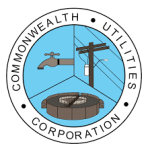The U.S. Department of Energy's (DOE) Office of Electricity (OE) today (Dec 3) announced nine projects selected to receive approximately $20 million through its Flexible Innovative Transformer Technologies (FITT) funding opportunity announcement (FOA) to advance key components that will help modernize the grid. OE also announced the eight winners of the Silicon Carbide (SiC) Packaging Prize Phase 1 who will receive $50,000 each in cash prizes (from a $400,000 total prize pool). The total $2.25 million prize, awarded in three phases, is part of the American-Made Challenges Program, which fosters collaboration between our nation's entrepreneurs and innovators, DOE's National Labs, and the private sector.
"The selected projects, which address advanced technology and supply chain challenges, show the ingenuity that will drive the innovation needed for the 21st century grid," said Gene Rodrigues, Assistant Secretary for the Office of Electricity. "Advanced transformers and semiconductor packaging will help the power grid to better serve the needs of residents and businesses, ensuring resilient, reliable, secure, and affordable electricity for all Americans."
FITT FOA
Transformers regulate voltage levels as power enters our homes and businesses. They are a critical grid component that ensure the reliability and security of power delivery to our nation's homes and businesses. Selected projects under the FITT FOA will address the technical challenges of advancing transformers through research, development, and demonstration across a range of distribution to transmission scale applications. DOE's Office of Electricity (OE) and the Office of Cybersecurity, Energy Security, and Emergency Response (CESER) are co-funding this FOA, contributing $18 million and $2 million, respectively.
The selected FITT projects are:
- Clemson University (Clemson, SC) for Smart Hybrid transformer for Abnormal Power Events (SHAPE) ($2.47 million):
- Integrates solutions of medium voltage power electronics and battery storage into a distribution transformer to form a smart, hybrid transformer for abnormal power events.
- Eaton Corporation (Menomonee Falls, WI) for Compact and Reliable Voltage Regulating Hybrid Transformer ($2.94 million):
- Researches and tests a hybrid transformer that will provide benefits within utility distribution networks and industrial sites.
- Electric Power Research Institute, Inc. (Palo Alto, CA) for Solid State PowerHub Development and Demonstration ($2.88 million):
- Accelerates commercialization of an innovative solid-state transformer that will accommodate input voltage variations ensuring stability.
- Electric Research and Manufacturing Cooperative, Inc. (Dyerberg, TN) for the Distribution Transformer Extender (DTE) Project ($1.84 million):
- Develops and deploys devices to innovatively use power electronics to combine critical solid-state transformer functionality with a small battery energy storage system.
- GE Vernova Operations LLC (Schenectady, NY) for Full-scale Alternating Current Solid-State Transformer Demonstration (FASST) ($1.99 million):
- Develops and deploys a one megavolt-amperes 3-winding, solid-state transformer to a public utility-owned substation to advance the technology's commercial readiness.
- GE Vernova Operations LLC (Schenectady, NY) for A Single-Phase Universal Spare Power Transformer for Grid Resilience ($2.99 million for topic area 2):
- Designs and deploys a single-phase 2-winding power transformer and solid-state tap changer to enable dynamic load balancing, power flow control, and fault current limiting capabilities.
- Resilient Power Systems, Inc (Austin, TX) for Direct Current-as-a-Service SolidFlex Power Hub: Revolutionizing Energy Distribution with Solid-State Transformer Technology ($1.47 million):
- Develops and demonstrates groundbreaking solid-state transformer technology to enhance efficiency, reliability, and flexibility in power distribution.
- Transforma Energy, Inc. (Albuquerque, NM) for Drop-In Replacement Electronically Controlled Transformer (DIRECT) ($1.45 million):
- Proposes a solid-state transformer architecture to increase system robustness and applicability across a variety of voltage and power ratings.
- University of Pittsburgh (Pittsburgh, PA) for Enabling Technology and Grid-Tied Testbed for Efficient, Flexible, Intelligent Distribution Transformers ($2.5 million):
- Leverages industry partners to identify new technologies for evaluation, benchmarking, and maturation to lead to enabling next generation intelligent distribution transformers.
Silicon Carbide (SiC) Packaging Prize Phase 1
Semiconductors control and manage the flow of electric currents in electronic equipment and devices such as mobile phones, laptop computers, and digital cameras. Silicon carbide is used as the raw material for semiconductors because it can withstand high electricity voltage fluctuations and temperatures. Prize winners will design, build, and test state-of-the-art SiC semiconductor packaging prototypes to enable these devices to work more effectively in high-voltage environments such as energy storage.
SiC Prize Phase 1 winners are:
- Board Breakers (Fargo, North Dakota)
- This team is creating a replacement of traditional power electronic modules by using additive manufacturing to print 3D ceramic packaging. Watch the team's 90-second submission summary video to learn more.
- LincolnX (Lincoln, Nebraska)
- This team plans to develop novel ultrafast and scalable SiC modules featuring dual orthogonal cooling to meet the prize goals and metrics. Watch the team's 90-second submission summary video to learn more.
- Marel Power Solutions (Plymouth, Michigan)
- This team plans to make packaging improvements through thermal management, three-dimensional mechatronic design, and a scalable arrangement of power switches. Watch the team's 90-second submission summary video to learn more.
- NC Solar Inverters (Cary, North Carolina)
- Using commercially available topside cooled discrete devices, this team will utilize their designed symmetric layout to maximize parasitic flying capacitance and minimize parasitic inductance. Watch the team's 90-second submission summary video to learn more.
- NoMIS-Lux-QPT-UA (Albany, New York)
- This team, comprised of NoMIS, Lux, QPT, and UofA, will combine their technology and products in Smart Metal Core SiC power blocks to create high voltage chip-scale packaging. Watch the team's 90-second submission summary video to learn more.
- Stony Brook Power Packaging Team (Stony Brook, New York)
- This team will develop high-voltage, high-current, fast-switching, and cost-effective modules and create a business entity for engineering sampling and commercialization. Watch the team's 90-second submission summary video to learn more.
- Superior SiC Power Module Team (Gainesville, Florida)
- This team plans to develop an interdisciplinary approach for SiC power modules with high-speed, high-energy efficiency, and low EMI. Watch the team's 90-second submission summary video to learn more.
- Team Raiju - University of Arkansas (Fayetteville, Arkansas)
- This team will embed 128 SiC die in LTCC controlled by an active dV/dt voltage balancer and cooled with integrated microchannel busbars. Watch the team's 90-second submission summary video to learn more.
In Phase 2, winning teams from Phase 1 will develop a physical prototype of their SiC packaging solution that meets Phase 2 metrics. In this phase, teams must send their prototypes to a national lab for testing to validate the metrics achieved. At the end of Phase 2, up to four winning teams will receive $250,000 each and become eligible to compete in Phase 3.
Learn more about the Office of Electricity.
















